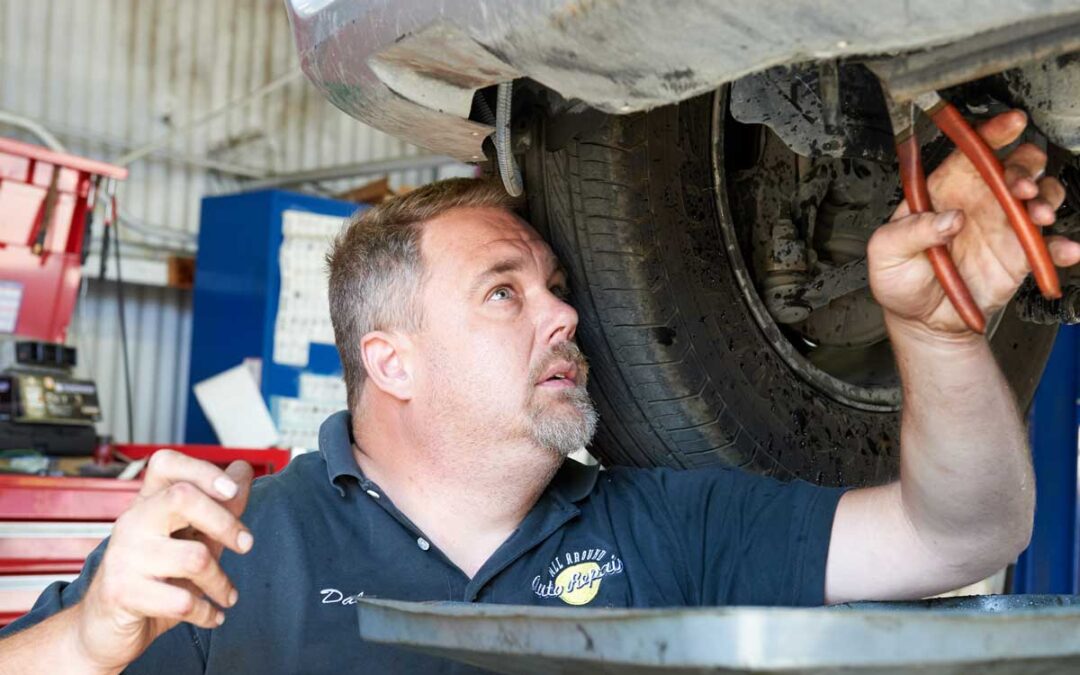Fleet vehicle maintenance is all about keeping your vehicles in tip-top shape so that they continue to improve your logistics and provide safe and reliable service.
When done right, fleet maintenance will also keep your fleet’s vehicles on the road for longer and, therefore, save your business a ton of money. Greater safety, better logistics, and greater savings? Where do I sign up?
Develop a Preventive Maintenance Plan
The starting point for your fleet’s preventive maintenance plan should be a number of thresholds that when crossed will trigger a pit stop into an auto repair shop like All Around Auto Repair.
What are these thresholds? Many managers choose to have their fleet’s vehicles sent in for preventive maintenance when certain mile markers are passed (e.g., every 3,000 miles), a certain number of time has passed between servicings, or when enough engine hours are logged.
But determining which of these metrics will trigger a preventive maintenance pit stop is only part of the solution – fleet vehicle maintenance needs a more comprehensive plan to be successful.
Checklist of Maintenance Performed
Every fleet vehicle maintenance plan should include a checklist of all preventive maintenance tasks you expect to be performed on your vehicles.
While different classes of vehicles in your fleet may require different maintenance schedules, the following are typical items on most preventive maintenance checklists for fleet vehicles: engine oil and transmission oil, belts and hoses, suspension and steering, exhaust system, and inspection for fluid leaks.
Many preventive maintenance intervals will vary based on whether the majority of your fleet’s vehicles are operating under normal duty or severe duty.
Severe duty might call for more frequent pit stops for preventive maintenance, and severe duty might be applicable with: trailer towing, frequent idling and/or stop-and-go driving, frequent off-road driving or frequent driving on pothole-ridden roads, and fleet vehicles frequently motor pooled by different drivers.
Process for Driver Inspections
Although the ASA-certified mechanics at All Around Auto Repair have electronic diagnostic tools to quickly and accurately gauge mechanical issues in your fleet vehicles, encouraging your fleet’s drivers to note any problems they experience can be beneficial.
Drivers might notice problems switching gears for instance, which could indicate worsening or nascent issues with the transmissions of affected fleet vehicles; similarly, a squealing or whining noise as drivers attempt to brake could mean that a brake inspection is long overdue.
The thing to do is have a process in place so that your fleet’s drivers can submit a record of any anomalies they’ve noticed while making deliveries or transportation goods.
Record Keeping Hub of Preventive Maintenance
You’ll ideally want a place to ultimately store all of this information.
You want a record of 1) the service that’s already been done to your fleet’s vehicles, 2) a timeline for service intervals in the future based on certain thresholds, and 3) a record of any observations that your fleet’s drivers have made through the years.
In fact, you might even want to consider getting fleet vehicle maintenance software that can allow you to do all three and allow you to further improve your logistics.
Fleet management software can keep closer tabs on fleet drivers, which allows for much more efficient dispatching, better fuel economy from all fleet drivers, and automated fleet reports.
Stop-and-go driving is really bad for your fleet’s vehicles since it prematurely ages your fleet vehicle’s components (e.g., engine and brakes). Fleet management software can clue you in to which vehicles are idling and/or doing a lot of stop-and-go driving. From there, you might reroute drivers or improve driving habits.
But more to the point of vehicle maintenance, once you know which vehicles are getting more strain, you’ll know that certain vehicles need to be taken in to All Around Auto Repair more frequently for fleet vehicle maintenance. Schedule fleet preventive maintenance by clicking here or calling 707 837 0646 today.


